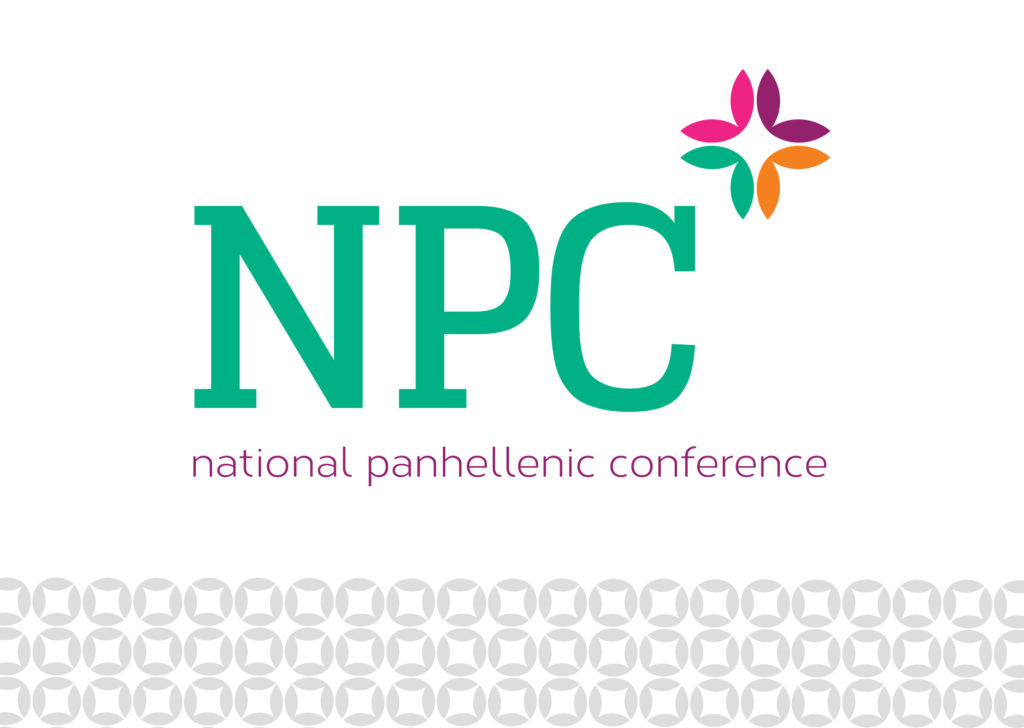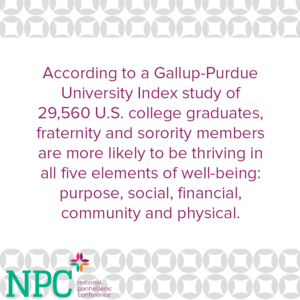A Sincere Commitment To Academic Excellence

by Carole Jurenko Jones, Alpha Delta (U of Alabama), 2019-2021 NPC Chairman

In the coming weeks college students will be returning to campuses to begin the 2019-20 academic year. With their arrival comes the excitement of a new year, the welcoming of new members and the importance our organizations and Panhellenic communities put on lifelong learning and academic excellence.
Research indicates that students today have an intense focus on career readiness. They are more career-driven and academically focused, with many of them finding that being in a sorority holds them back as opposed to enhancing their academic focus. This puts the burden of providing relevant and engaging academic and career programming on our member organizations and Panhellenic communities so they are preparing members for life after college.
According to a 2014 Gallup-Purdue University Index study of U.S. college graduates, it’s not the type institution you attend, but it’s the support you receive that matters. Graduates who were emotionally supported during college have more than double the odds of being engaged in their work and nearly three times as likely to be thriving in life after college. Sorority members report higher well-being and workplace engagement, which they attribute in large part to the support of their member organization as well as the institutions of higher learning they attended. This is confirmation that sororities do indeed provide significant benefits in helping women graduate and as sorority women it is our mission to educate others about the role our organizations have in ensuring the success of members.
 As we begin a new academic term, I encourage our Panhellenic Councils and member organization chapters to take an active role in providing effective programming and recognition in order to establish a culture in the sorority community that fosters academic excellence. Scholarship is one of NPC’s building blocks for advocacy and we need to teach our members to take an active role in their education and learn to be their own advocate. Encourage them to be proactive about using resources available on campus and be the person who’s not afraid to speak up when they need help. Talk about the importance of getting to know their professors with the goal of attending professor office hours during the first few weeks of the semester. This lets the professor know they are serious about doing well in class.
As we begin a new academic term, I encourage our Panhellenic Councils and member organization chapters to take an active role in providing effective programming and recognition in order to establish a culture in the sorority community that fosters academic excellence. Scholarship is one of NPC’s building blocks for advocacy and we need to teach our members to take an active role in their education and learn to be their own advocate. Encourage them to be proactive about using resources available on campus and be the person who’s not afraid to speak up when they need help. Talk about the importance of getting to know their professors with the goal of attending professor office hours during the first few weeks of the semester. This lets the professor know they are serious about doing well in class.
According to the Gallup-Purdue survey results, college graduates who had a professor who cared about them as a person, made them excited about learning and encouraged them to pursue their dreams, are more engaged in the work force than those that did not. Building strong mentoring relationships is key to establishing a support system whether it’s with a professor, sorority/fraternity advisor, chapter advisor, alumnae member or peer. Those mentoring relationships and the academic standards you set will enable NPC and its 26 member organizations to continue to promote our consistent message that the sorority experience adds value and enriches lives.
By educating sorority women on the importance of academic success, you are helping them fulfill their academic potential and live up to the scholastic ideal stated in the Panhellenic Creed:
We, as Undergraduate Members of women’s fraternities, stand for good scholarship, for guarding of good health, for maintenance of fine standards and for serving, to the best of our ability, our college community.
Moreover, through effective programming and recognition, a College Panhellenic can establish a culture within the sorority community that demonstrates a sincere commitment to academic excellence.

